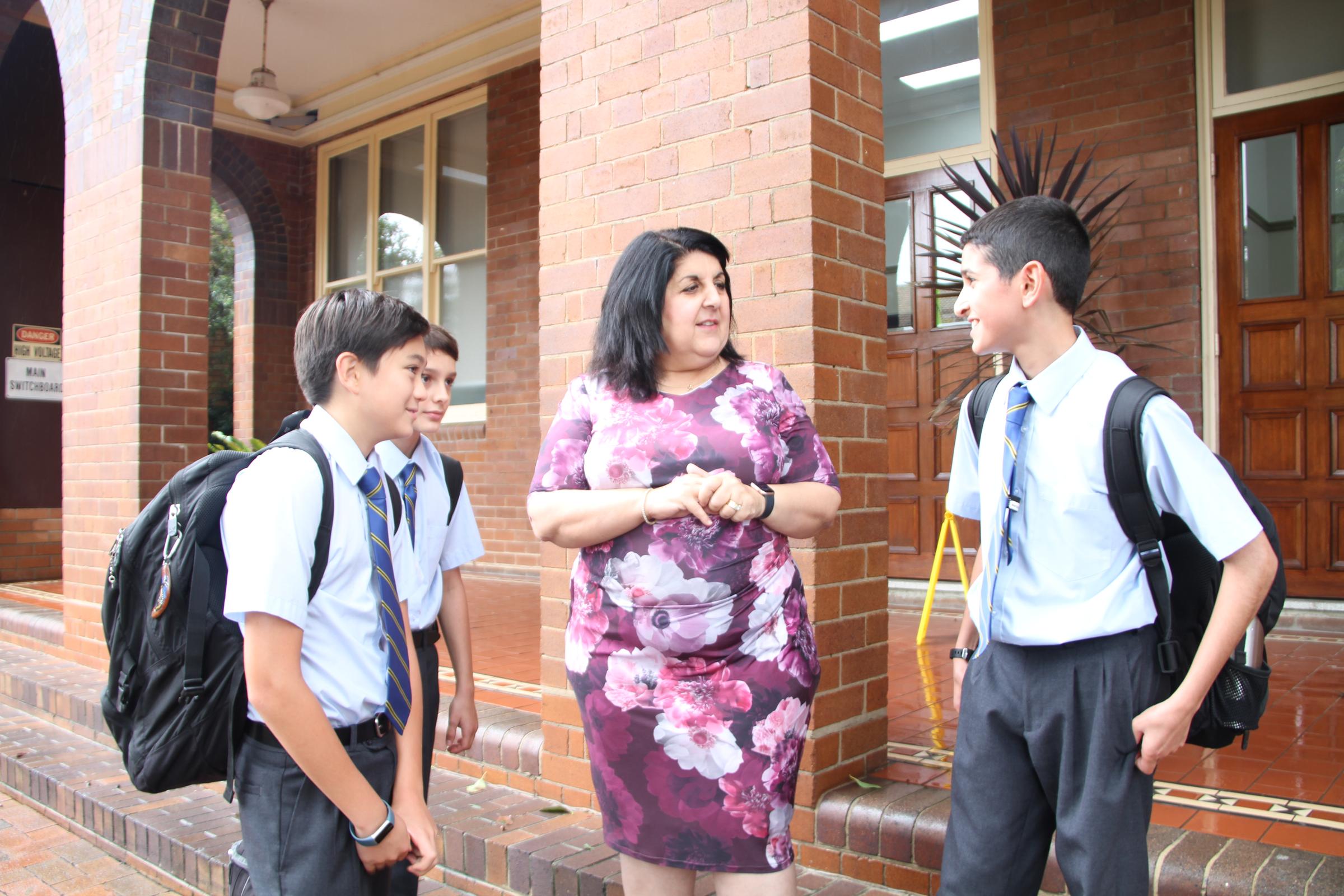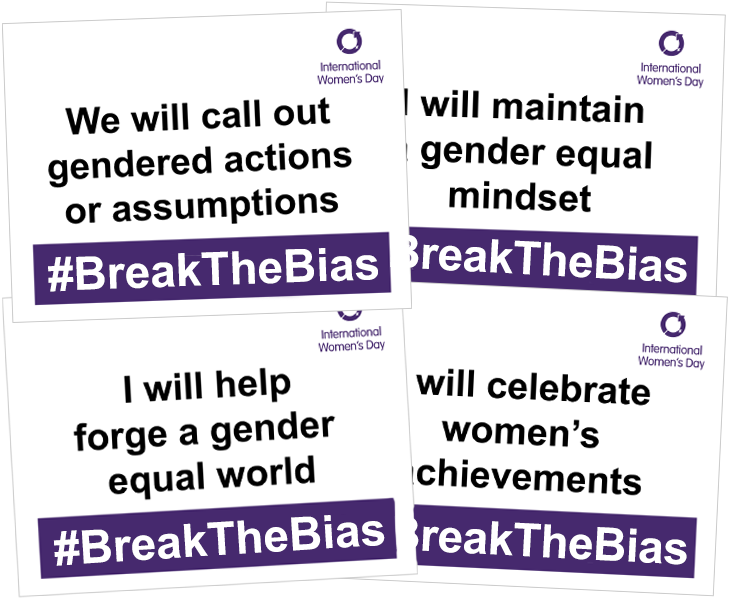Principal

Pope Francis’ Lenten Message 2022
Last Wednesday 2 March, students and staff observed the beginning of Lent on Ash Wednesday. Our Maronite Catholic students commenced their preparation for Lent on Ash Monday 28 February.
Beginning with the image of sowing and reaping, the Holy Father writes that “Lent invites us to conversion, to a change in mindset, so that life’s truth and beauty may be found not so much in possessing as in giving, not so much in accumulating as in sowing and sharing goodness.”
Pope Francis connects Paul’s words to the Galatians to the traditional Lenten practices of prayer, fasting, and almsgiving. In this season of conversion, he reminds us, the soil of our hearts “is prepared by fasting, watered by prayer and enriched by charity.”
Read the full text of the Pope's Lent’s message.
We are called to share small acts of love with one another. In addition to the Lenten fundraising that the boys will be participating in, let us focus on our day-to-day interactions with one another:
Small acts of love
Generous God,
We thank you, and we praise you,
for we are surrounded
by your abundant gifts.
The table you have laid is piled high,
and yet too many people
are turned away from the feast.
Work through us, we pray, so that,
as the tiny acorn
becomes the mighty oak,
our small acts of love may grow,
bringing hope of a world transformed,
where all may eat their fill. Amen.
International Women's Day Tuesday 8 March 2022
The path to women's equality has been long and challenging, and here are some reasons why. Each stage provided an important focus in forging the gender agenda further along.
- Activism: In the late 1800s and early 1900s, women activists fought hard for equality. The focus was largely on securing the right to vote and equal pay for equal work. These two issues, women's voice and participation in government and the gender pay gap, largely remain key priorities well over a century later.
- Feminism: Fast-forward to the 1970s and widespread feminist action saw women rallying, protesting, and lobbying hard for inclusion, influence, and equality. Feminists faced many challenges, systemic and societal, not only from opposing men, but also from other women.
- Fix the women: The 1980s saw an array of "Fix the Women" programs that were well-meaning in trying to help women become more confident, visible, well-networked and assertive, but many reinforced a notion that women needed to "act like men" and "fit" into existing patriarchal structures and organisations if they were to succeed (all while still being a superwoman in the home). Shoulder pads, power suits, high heels and a loud voice were in fashion.
- Change the organisation: The 1990s and 2000s focused on organisational development: "Maybe if we change or fix the organisational structures, women will thrive?" So, a focus on areas like 'women in the boardroom' escalated, as did more diverse recruiting, inclusive talent pipelines, and attention to wider diversity groups beyond gender such as race, LGBT+ and so forth. The introduction of "Top Company" and "Top Women" style lists occurred and as they increased in popularity, the number of new lists launched each year increased exponentially. The number of women's conferences and networks also increased significantly and continue to play an important and necessary role across all countries. The volume of gender-related research also increased - new insight, new terms and understandings, new phrases, measurement of the extent of problems or success; hard facts and numbers; incremental data.
- Men as allies: In more recent years, men as advocates, and champions of change has been recognised as a major trend in accelerating women's equality. Many progressive CEOs and influential leaders have committed via formal public channels to helping build diverse and inclusive organisations that challenge stereotypes and bias.
- Now the world expects inclusivity: And so here we are. Movements like #MeToo, #TimesUp and the significant global rise in International Women's Day activity in every corner of the world, along with the many female-focused days and initiatives around the world mean gender is firmly on the agenda. As expectations rise and information spreads faster and wider than ever before, organisations face unprecedented scrutiny from candidates, consumers, communities, investors, governments, and the media in terms of their support for and treatment of women. Many employers now publicly publish annual Diversity, Equity and Inclusion (DEI) reports and participate in various indices and accolades.
Gender-related conversations and activity are certainly on the rise. Over the years, the term "International Women's Day" was the most discussed topic on Facebook by millions (even more than the Super Bowl), and back in 2018, Pantone's 'Colour of the Year' was purple (i.e., women's colour). Everywhere, gender is on the mainstream radar and impacting the narrative. Stereotypes, discrimination, and bias are more likely to be called out. Men's role in society is more varied and gender roles are more fluid.
We are moving to a very exciting time in history where the world now "expects" diversity, equity, and inclusion. The world notices its absence and celebrates its presence.
- Step back over the years: For example, International Women's Day 2016 saw people worldwide being asked to support women's equality and develop an inclusive mindset via a #PledgeforParity. Then for International Women's Day 2017, the world was asked to #BeBoldforChange and identify tangible action to help accelerate gender parity. International Women's Day 2018 saw a massive #PressforProgress as the world stepped forward to push the boundaries and go beyond in achieving greater equality for women. International Women's Day 2019 saw groups continue to play a critical role in helping forge a more gender-balanced world as we worked towards a #BalanceforBetter. International Women's Day 2020, amidst the pandemic, saw an important wave of collective individualism as we all strived to be #EachforEqual because we know that an equal world is an enabled world. Then in 2021, we saw widespread global adoption of the #ChooseToChallenge theme as groups committed to actively watching for and calling out inequity.
Now in 2022, we must step up and be aware of the significant impact that bias has on women's equality, both conscious and unconscious bias. We need to recognise it and call it out.
We need to #BreakTheBias.
Some quick facts about bias:
- How many times more often do men interrupt women than other men?
Answer: Almost three times more often.
- In a study of performance reviews, what % of women received negative feedback on their personal style such as “You can sometimes be abrasive”? And what % of men received that same type of feedback?
Answer: 66% of women and 1% of men.
- What % of Black women have never had an informal interaction with a senior leader at their company?
Answer: 59%.
WHAT TO DO: Speak up! When a woman gets interrupted, speak up. You might say, “I’d like to hear the rest of [Name’s] thoughts” or “[Name] raised an important point. I’d like to consider it further before we move on.” When you hear people giving commentary on a girl or woman’s personal style, challenge them to see their bias.
International Women’s Day (IWD) Breakfast: Strathfield Council
St Patrick’s College Strathfield was privileged to be invited to the IWD breakfast at Strathfield Town Hall.
I was accompanied by a range of student leaders: Blake Timillero (Year 12), Daniel Libro (Year 12), Matthew Younan (Year 11), Luke Bromfield (Year 10) and Jackson Cleary (Year 10).
Our students are the sons and brothers of women in their families and will take on the role of father, husband and partner in their adult life.
We were fortunate to hear from Nicole Yade who runs the Women’s and Girls’ Emergency Centre (WAGEC) and her personal journey with domestic violence. We also heard from Virginia Judge, former Councillor for Strathfield Council, Labor MLC and Minister for Education. She spoke of the battles she had forging a path in politics with three young children against a community who would give her negative feedback about not being at home with her children. We have certainly gone a long way!
Two strong female leaders who are also mothers in our St Patrick's College community were also present: Ms Natalie Baini (member of our Advisory Council and Independent candidate for Reid) and Ms Bridget Sakr (recent candidate for the NSW seat of Strathfield). Our boys are privileged to be surrounded in their homes and the College by positive, strong female role models. The future is in good hands with our St Patrick's College boys leading the charge.
In Memoriam
We pray for Calvin Nguyen (5 Gold) on the recent loss of his grandfather.
Eternal rest grant unto him O Lord and let perpetual light shine upon him.
May he rest in peace. Amen.
Dr Vittoria Lavorato
Principal
SPC boys can do anything!
** except divide by zero



